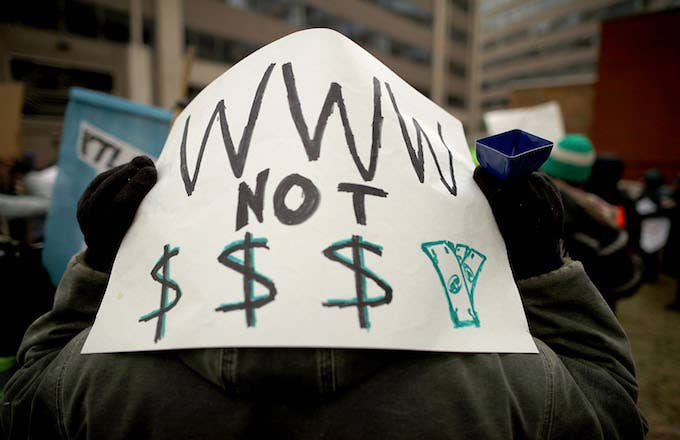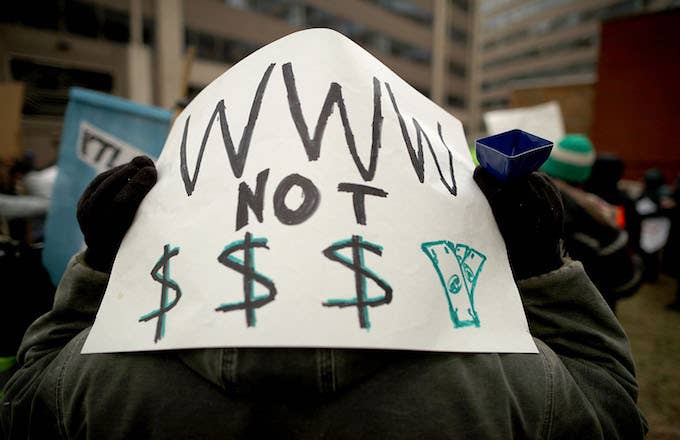
Thanks to a truly unusual good thing to come out of the U.S. Senate, net neutrality will live to fight another day, USA Today reports. Three Republicans joined all 49 Democrats to vote to keep the regulations in place, reversing the widely protested decision made by Ajit Pai's FCC back in December of last year to repeal them. Net neutrality is important because it prevents internet providers from charging more for fast access to content, or from blocking or slowing down access to content.
Net neutrality was first introduced in 2015 under Barack Obama. Susan Collins of Maine, John Kennedy of Louisiana and Lisa Murkowski of Alaska were the three Republican Senators who voted to keep the rules.
However, it is not time to celebrate just yet. While the Senate voted to stop the FCC, the measure must now also pass in the House of Representatives, which holds an even wider Republican majority. Today’s vote was made possible under the review act, in which just 30 senators were necessary to vote on the proposed measure. The same process in the House also requires a majority vote— in other words, 218 votes—to force a vote. For that reason, it’s not certain that Republicans in the House will decide to vote on the measure.
Plus, even if this measure does pass through both houses of Congress, it would have to be signed into law by Trump, who has spoken negatively of net neutrality, because of course he has.
“This is our chance—our best chance—to make sure the internet stays accessible and affordable for all Americans,” said Senate Minority Leader Chuck Schumer, D-NY.
Republicans are generally against net neutrality because they see it as government overregulation. They also don’t appear to fully understand the implications of net neutrality or what a repeal means. Plus, it’s an Obama-era rule, which is usually all Trump and Republicans need to go against any given thing.
Besides the Senate and the House, a group of 21 state attorneys, which include those of California, New York, Virginia, and the District of Columbia, have filed a petition with a federal appeals court to challenge the ruling, calling it “arbitrary, capricious, and an abuse of discretion.” Plus, the governors of New York and Montana have both signed executive orders to protect net neutrality in their states.

